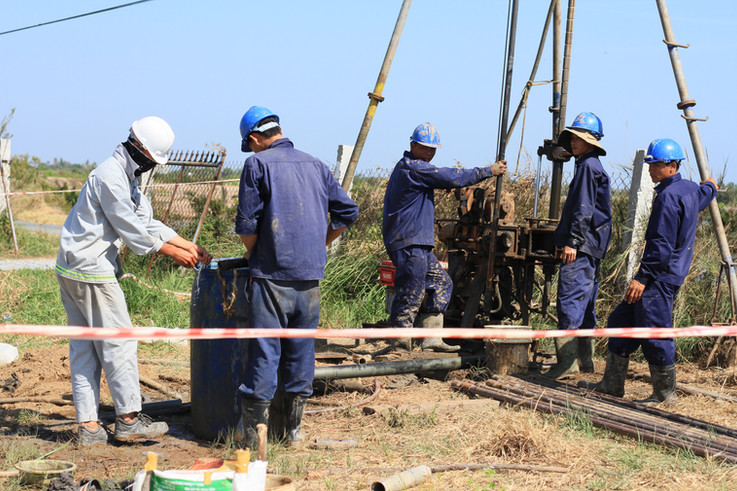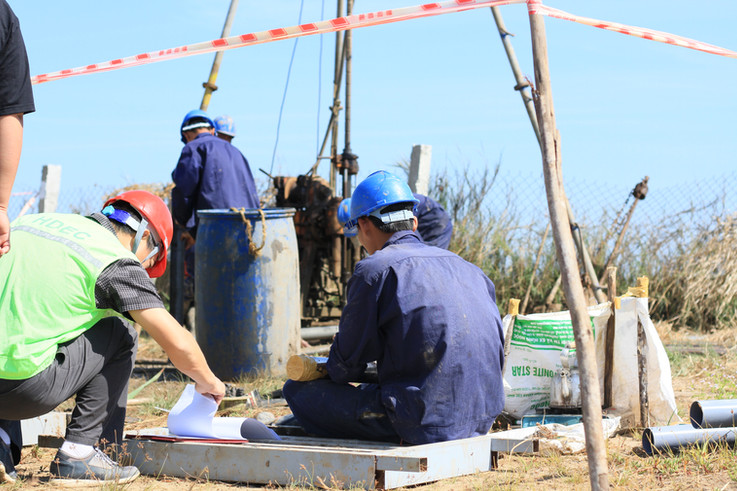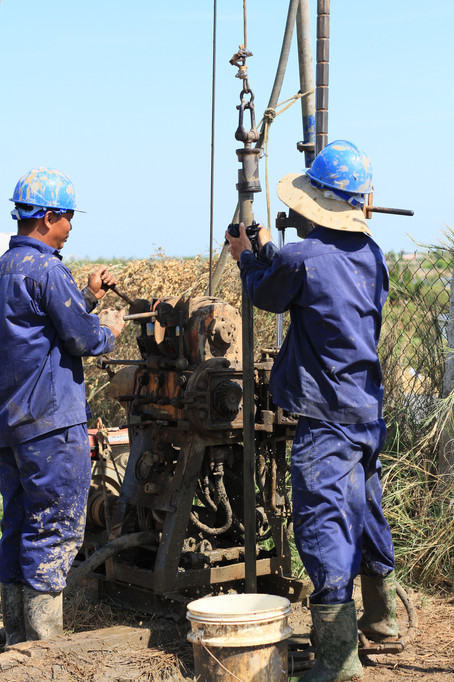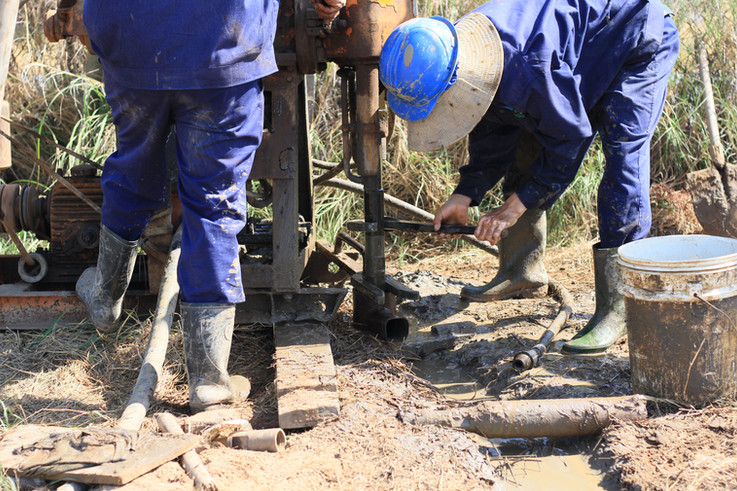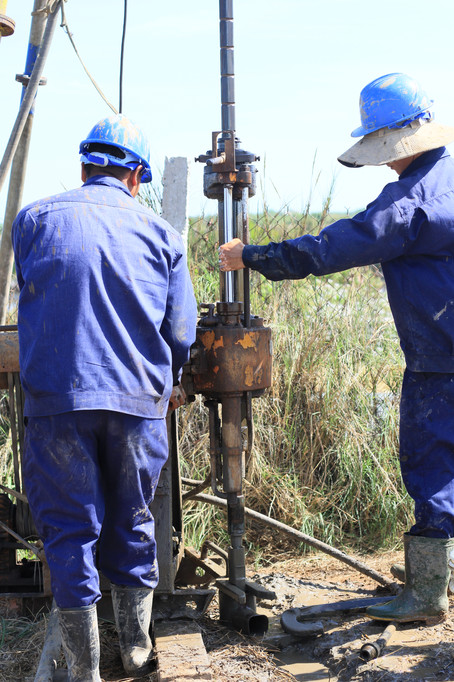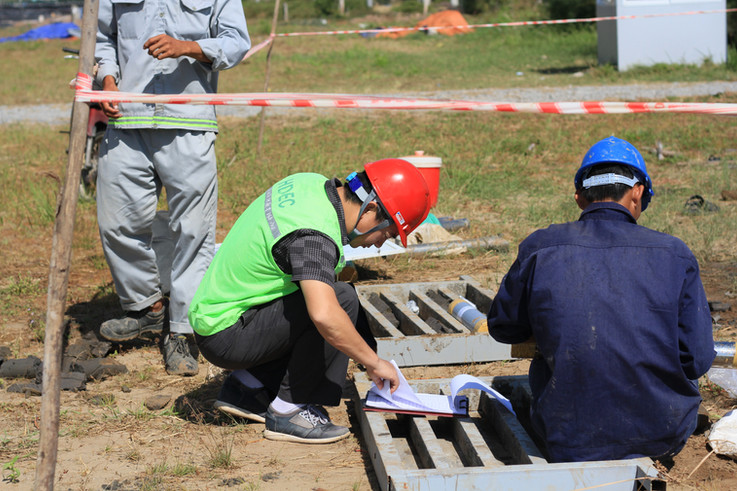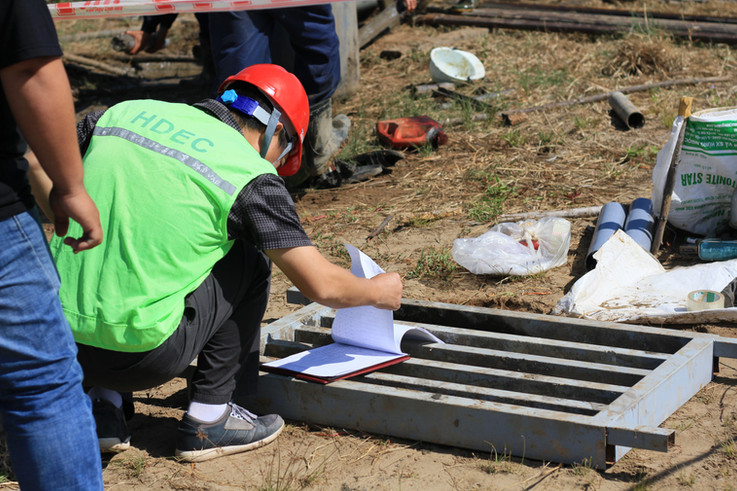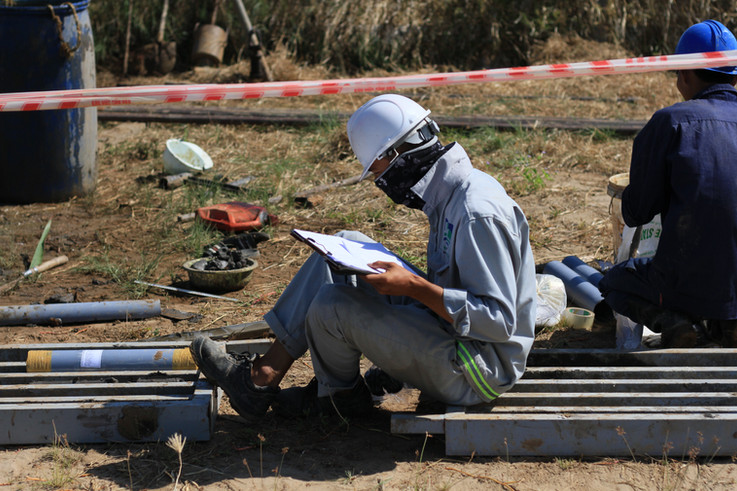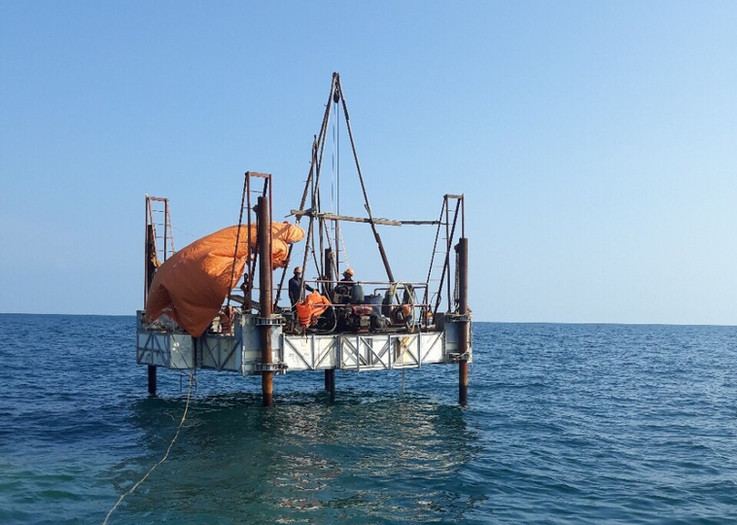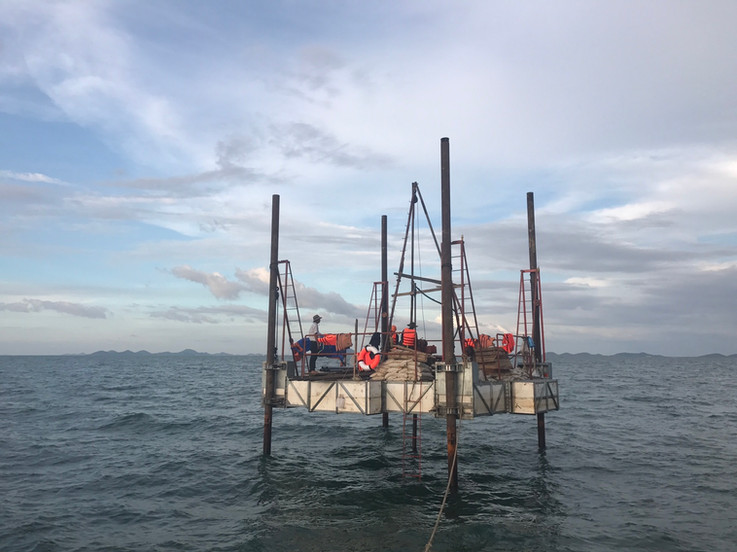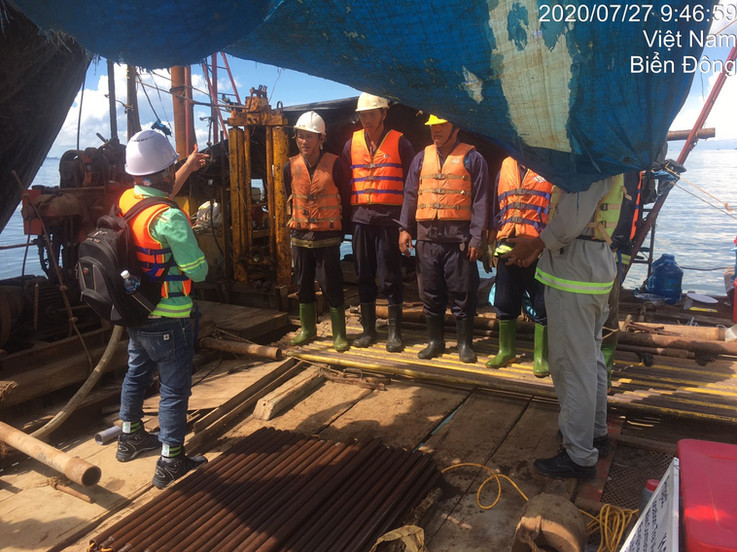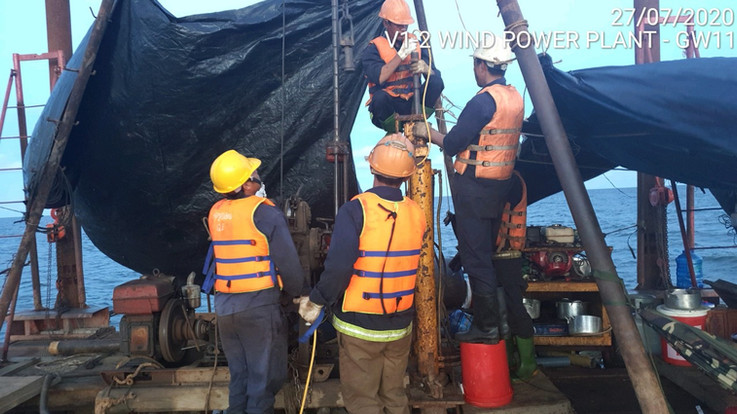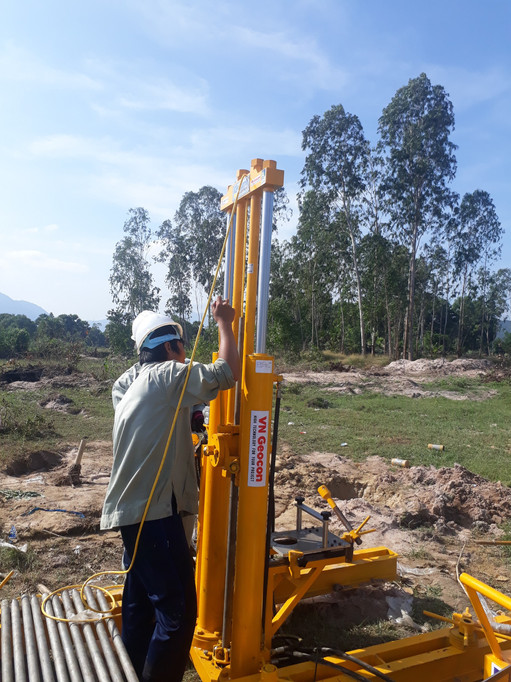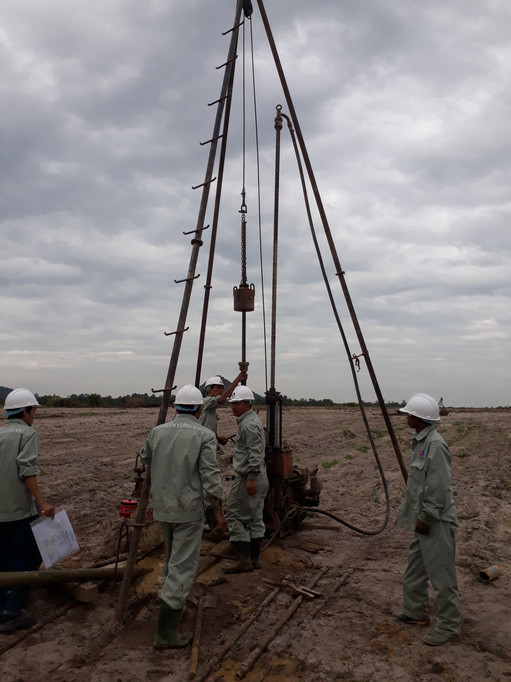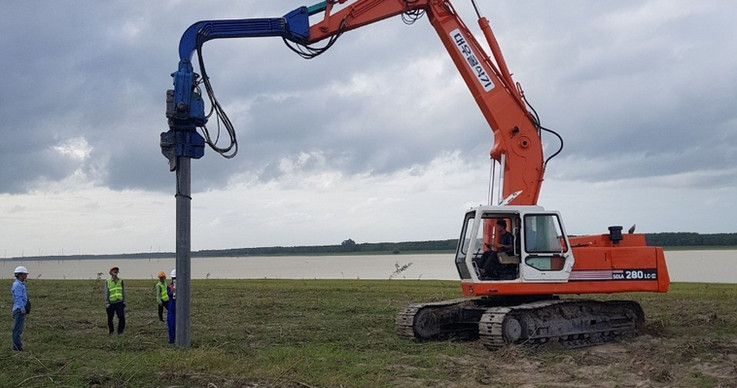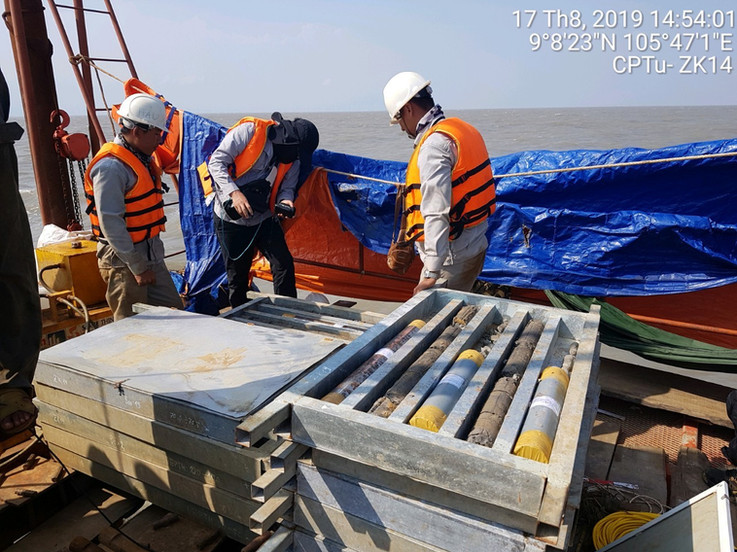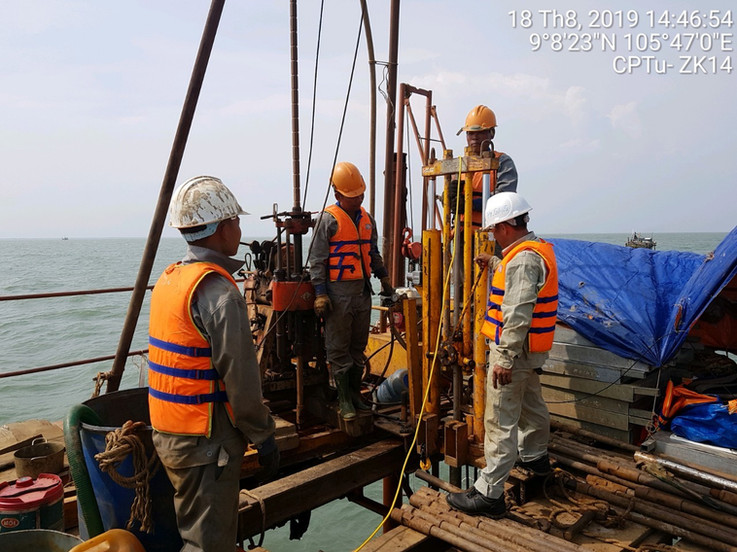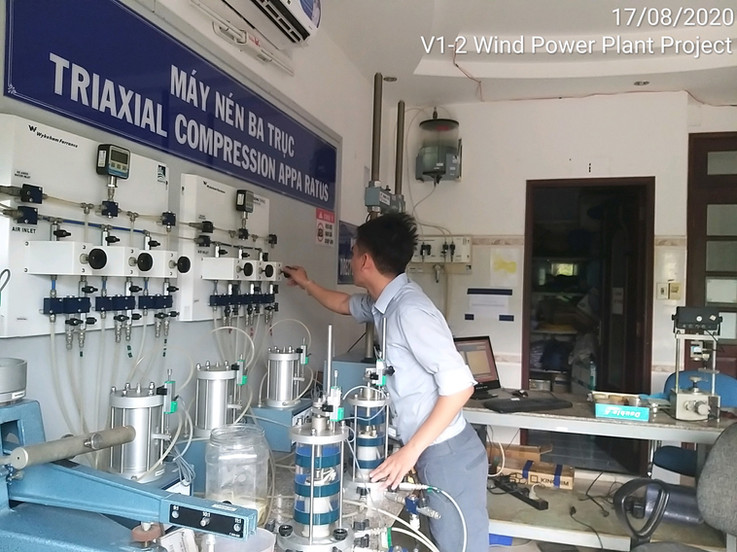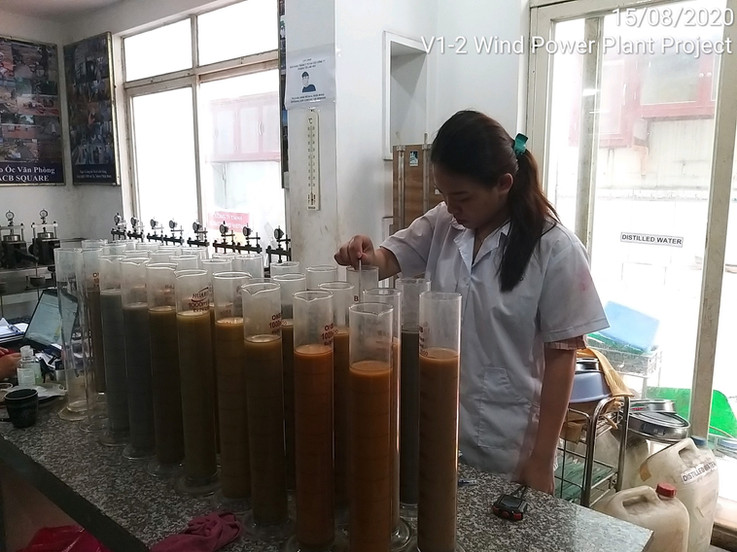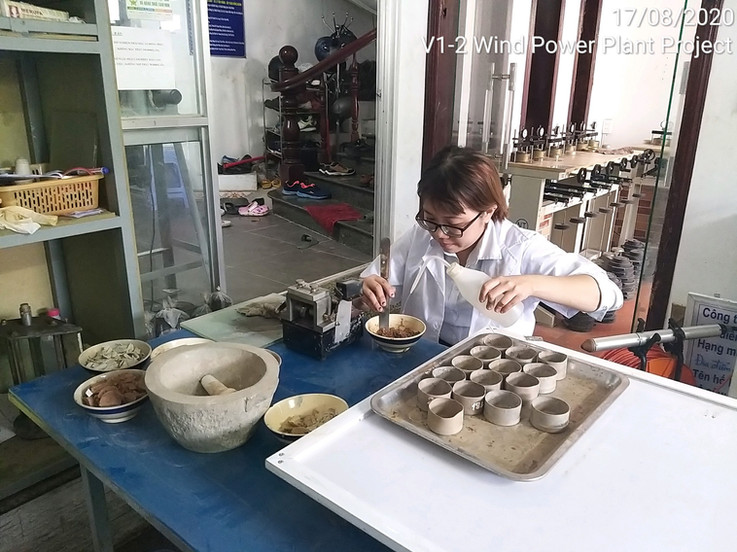GEOTECHNICAL INVESTIGATION:
The geotechnical survey aims to determine the structure of soil layers, determine the physical and mechanical properties of the layers, underground water level and geological hazards for planning, design and foundation treatment.
The Geotechnical survey for a project usually includes part or all of the following items of work:
LABORATORY TESTING:
After completing the fieldwork, the soil and rock samples were transferred to the laboratory and the following contents were tested:
- Particle grain size analysis.
- General Physical parameters (Natural moisture, density, wet density, dry density, saturated density, void ratio, porosity, saturation, maximum dry density, minimum dry weight and relative density).
- Atterberg limit (GH flow, plasticity).
- The angle of repose of sandy soil.
- Consolidation compression test (Cv, Ch).
- Unconfined compression test (Qu).
- Direct shear test (rapid shear and consolidation rapid shear).
- Triaxial compression test (UIU, CIU and CID diagram).
- Thermal conductivity of the soil.
- Soil chemical testing for concrete and steel structures.
- Simple water chemical analysis.





